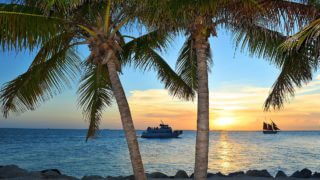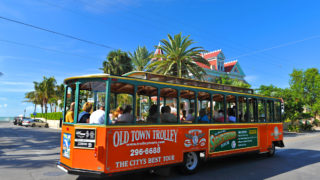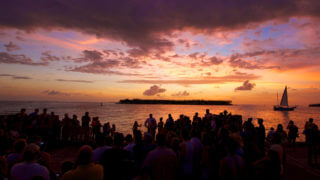Key West Botanical Garden
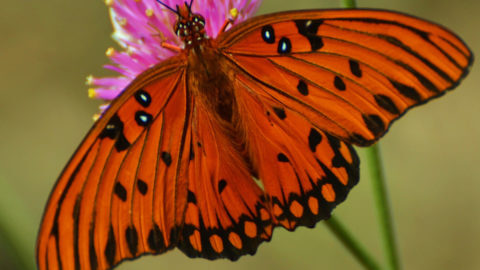
Key West Tropical Forest & Botanical Garden
The Key West Tropical Forest & Botanical Garden is the only frost-free sub-tropical native botanical garden in the continental United States. Here you can see many endangered and threatened flora and fauna. A beautiful and serene respite, this special place will take you back in time and allow you to be among butterflies, birds, plants and seasonal flowers.
Located on Stock Island at the edge of New Town, the Key West Tropical Forest & Botanical Garden is a 15-acre haven of plants and animals native to Key West, the Florida Keys, Cuba and the Caribbean basin.
History and Development
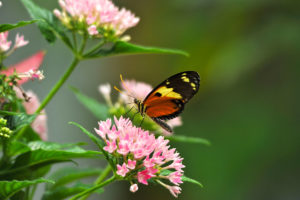
At its most lush, the garden occupied 55 acres with greenhouses, flagstone walkways, orchid houses, an aviary and an amphitheater, but during World War II, the garden fell into neglect and disrepair. Sections of the site were used to build a military hospital and to house storage tanks for the Florida Keys Aqueduct Authority and the Key West Golf Course.
By 1961, the gardens dwindled to only 7.5 acres. Countering further degradation, the City of Key West designated the garden as a permanent wildlife sanctuary, botanical garden and arboretum. While the garden enjoyed a flourishing period, it soon fell to neglect once again.
In 1972, the Key West Garden Club assumed responsibility for the garden and launched a major restoration project. In 1988, the Key West Botanical Garden Society was formed and today the organization continues its commitment to the preservation of this beautiful, natural and unique ecosystem in the lower Keys.
Exhibits and Notable Areas
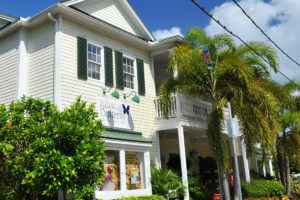
Visitor Education Center
You’ll be greeted by a volunteer at the Visitor Center where you can pick up a Garden Guide that outlines 10 self-guided information tours, two butterfly gardens, two wetland habitats and two exhibits.
Film & Photo Wall
Next, sit down to watch a short film about the gardens and the many species of plants that call this nature sanctuary home. A photo exhibit is also on display here.
Garden Courtyard
The lush courtyard has a waterfall wall of tropical plants where you can spot turtles in their natural habitat.
Historic Boardwalk
Just of the Garden Courtyard, the Boardwalk encompasses the 1.5 acre Historic Butterfly Garden introducing you to the prime hardwood hammock including the Jamaica Caper, Paradise Tree, the Garden’s signature Lignum Vitae and a number of historic trees from the original Garden 1936.
Western Loop
Along the Western Loop, you’ll walk through a forest of Cinnamon Bark, Wild Tamarind, Milkbark, Wild Dilly, and Gumbo Limbo trees.
Butterfly Gardens
There are two gardens: the Historic Butterfly Garden and the Blue Butterfly Garden, home to more than 38 species of native butterflies.
Wetlands Habitat
There are three wetlands habitats inside the gardens, the Northside Pond, Desbiens Pond and the Hammock Marsh. This is where people spot rare resident white crowned pigeons, bald eagles, herons and more.
Flutterby Fields
A natural field of native plants most would consider weeds, Flutterby Fields combines various grasses attracting birds, bees and butterflies with an exhibit of plants in the Nightshade Family, Solanum (flowering) and various Stopper trees.
Southside Pond Tour
Southside Point Tour is called the Terrace walk and is labeled as ‘bird alley’ demonstrating a prime example of a migratory and residence natural bird habitat.
Chapel Walk
From the visitor parking lot, the most scenic tours of the Garden lead you to the Visitor Center and to the Nature Chapel & Picnic Pavilion.
Cuban Palms Exhibit
Towards the end of your tour, you’ll encounter the Cuban Palm and Cuban Chug exhibits showcasing lush, rare and unusual palm trees indigenous to the region and a collection of historic vessels that successfully navigated the Florida Straits to freedom.
Visitor Information
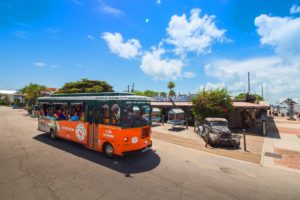
Admission is $7. Seniors are $5 and children under 12 are free.
Self-guided tours via the Anniversary Garden Guide, free audio/text tour via your phone and complimentary WiFi are available. Docent tours are available when arranged in advance.
Located near Stop #7 aboard the Old Town Trolley tour.
5210 College Road
305-296-1504
Things to Do Nearby
Key West Golf Club
Spend an afternoon on the links. The Key West Golf Club is adjacent to the grounds of the Key West Tropical Forest & Botanical Garden.
Tennessee Williams Theatre
The Tennessee Williams Theatre is one of Key West’s leading performance venues, hosting everything from symphony orchestras to dramatic plays.
Lazy Dog Adventures
Located on the other side of the Overseas Highway at Cow Key Channel, Lazy Dog Adventures is a favorite paddleboard and kayak outfitter. Rentals and tours are available.
 Hogfish Bar & Grill
Hogfish Bar & Grill
For lunch with Old Key West charm and delicious, fresh seafood, head to Hogfish Bar & Grill located a short drive from the Tropical Forest & Botanical Gardens on the other end of Stock Island.

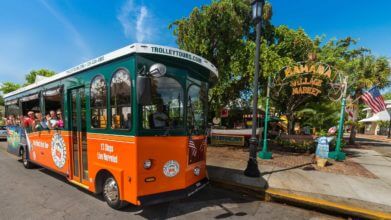
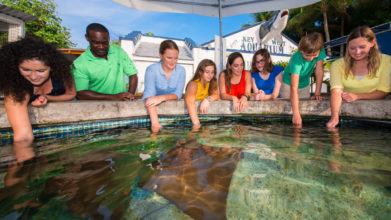
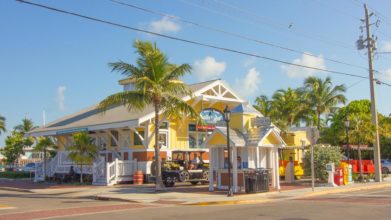
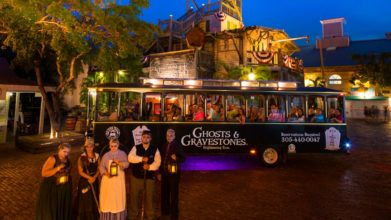
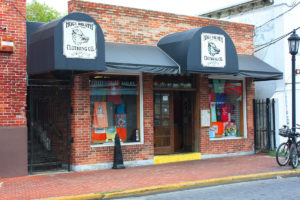 Hogfish Bar & Grill
Hogfish Bar & Grill